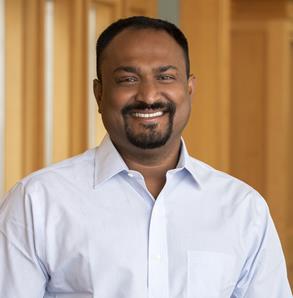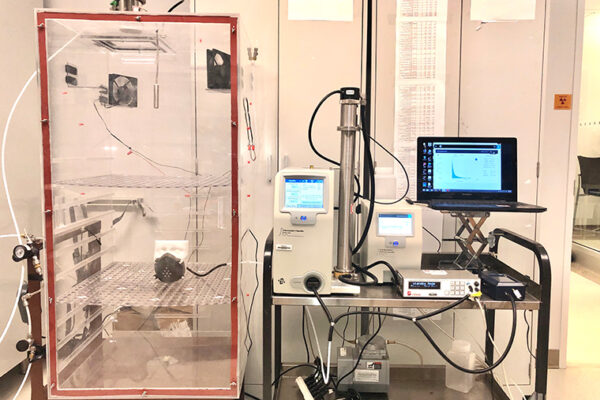The U.S. is reeling from a public health crisis driven by the misuse of prescription and illicit opioids with nearly 12 million people abusing the drugs annually. The Midwest saw opioid overdoses increase 70 percent from July 2016 to September 2017, and every 15 minutes a baby is born suffering from opioid withdrawal as a result of maternal opioid abuse.
A biomedical engineer at Washington University in St. Louis is developing a therapeutic option that would prevent the opiates from crossing the blood-brain barrier, preventing the high abusers seek.
Jai Rudra, assistant professor of biomedical engineering in the McKelvey School of Engineering, is developing nanovaccines to combat opioid misuse with a two-year, $373,068 grant from the National Institutes of Health’s National Institute on Drug Abuse (NIDA) through its Cutting-Edge Basic Science Research award program.

“Research shows that an average of 25 percent of patients prescribed opioids for chronic pain misuse them, and 75 percent of all people who progressed to use heroin admitted that their first opioid was a prescription drug,” said Rudra, who is the first faculty member from McKelvey Engineering to receive a grant from NIDA.
“The problem is that the addiction to prescription opioids is laying the foundation for abusing illicit drugs. The unfortunate thing is that there are a couple of existing pharmacotherapies that actually are addictive themselves.”
Psychoactive drugs have to get to the brain to be able to experience “the high,” so blocking them from reaching the brain prevents the rewarding effect, said Rudra, who is collaborating on the project with the Hennepin Health Care Research Institute in Minnesota.
“We are developing a therapy that will generate an anti-opioid antibody that will arrest the drug in circulation and prevent it from getting to the brain,” he said. “While this immunotherapy does not directly address the underlying neurobiological mechanism behind drug abuse, it is intended to treat a person in recovery in the event of a relapse. The patient will obtain no pleasure from taking the drug and will be further motivated to continue toward recovery.”
Rudra, whose research is in immunoengineering, is using drug analogs of oxycodone and heroin called haptens that generate a selective response toward the drugs.
“Since the immune system does not see the small drug molecules as a threat, we attach them to a synthetic supramolecular nanocarrier,” he said. “The carrier-drug combination is sensed by the immune system as a foreign entity, generating an anti-drug antibody response.”
In addition, this treatment would not cross react with existing pharmacotherapies, such as naloxone, also known as Narcan, and could be potentially used in combination. Initially, Rudra and his team will develop a therapy for oxycodone and heroin separately, then try to develop a dual treatment that will neutralize both drugs.
“The fact that the National Institute on Drug Abuse is investing in this program shows that they are looking for alternatives to existing therapies, which attests to the magnitude of the opioid crisis today,” Rudra said.
Rudra hopes that the award and research outcomes will lead to tracking laws and creation of a database in the state of Missouri, the only state that does not monitor prescription drugs.
The McKelvey School of Engineering at Washington University in St. Louis focuses intellectual efforts through a new convergence paradigm and builds on strengths, particularly as applied to medicine and health, energy and environment, entrepreneurship and security. With 96.5 tenured/tenure-track and 33 additional full-time faculty, 1,361 undergraduate students, 1,291 graduate students and 21,000 alumni, we are working to leverage our partnerships with academic and industry partners — across disciplines and across the world — to contribute to solving the greatest global challenges of the 21st century.




Comments and respectful dialogue are encouraged, but content will be moderated. Please, no personal attacks, obscenity or profanity, selling of commercial products, or endorsements of political candidates or positions. We reserve the right to remove any inappropriate comments. We also cannot address individual medical concerns or provide medical advice in this forum.